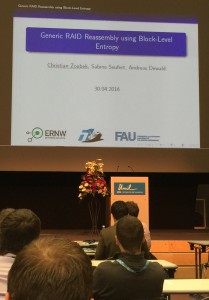At the TROOPERS’15 Jacob l. Torrey held a track about LangSec-Aware Software Development Lifecycle. He talked about programming conventions and what tools can be used for enforcing the compliance. There is a lack of metrics to understand what make software more secure or less secure. His main goals was to show that LangSec has far-reaching impacts into software security and to give the audience a framework to transform the theory into practice. A SLDC should help to find bugs sooner in the development process and reduce defect rate in production thereby. A lower defect rate in production does not only improve security it also reduces costs.
Continue reading “Towards a LangSec-aware SDLC”
Continue reading